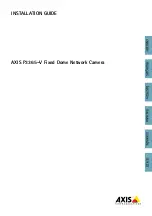
Chapter 16 IPSec VPN
127
16.3.7.1 ID Type and Content Examples
Two IPSec routers must have matching ID type and content configuration in order to set up a VPN
tunnel.
The two Routers in this example can complete negotiation and establish a VPN tunnel.
Table 74
Matching ID Type and Content Configuration Example
ROUTER A
ROUTER B
Local ID type: E-mail
Local ID type: IP
Local ID content: [email protected]
Local ID content: 1.1.1.2
Remote ID type: IP
Remote ID type: E-mail
Remote ID content: 1.1.1.2
Remote ID content: [email protected]
The two Routers in this example cannot complete their negotiation because Router B’s
Local ID
Type
is
IP
, but Router A’s
Remote ID Type
is set to
. An “ID mismatched” message displays in
the IPSEC LOG.
Table 75
Mismatching ID Type and Content Configuration Example
ROUTER A
ROUTER B
Local ID type: IP
Local ID type: IP
Local ID content: 1.1.1.10
Local ID content: 1.1.1.2
Remote ID type: E-mail
Remote ID type: IP
Remote ID content: [email protected]
Remote ID content: 1.1.1.0
16.3.8 Pre-Shared Key
A pre-shared key identifies a communicating party during a phase 1 IKE negotiation (see
for more on IKE phases). It is called “pre-shared” because you have to share it
with another party before you can communicate with them over a secure connection.
Type an e-mail address (up to 31 characters) by which to identify this Router.
The domain name or e-mail address that you use in the
Local ID
Content
field is used
for identification purposes only and does not need to be a real domain name or e-
mail address.
Table 73
Local ID Type and Content Fields (continued)
LOCAL ID
TYPE=
CONTENT=
Summary of Contents for Movistar GPT-2541GNAC
Page 47: ...Chapter 4 LAN 47 Figure 25 LAN Setup...
Page 99: ...Chapter 11 DNS 99 Figure 62 DNS Server...
Page 144: ...Chapter 20 Wireless 144 Figure 92 Wireless Security...
Page 166: ...Chapter 21 Voice 166...
Page 196: ...Chapter 21 Voice 196...
















































